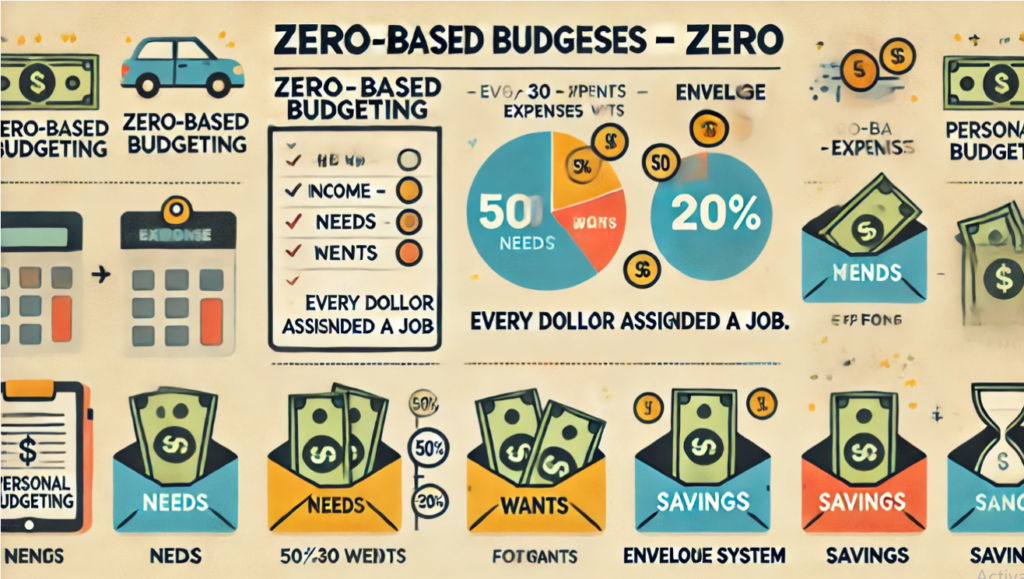
Budgeting is a crucial skill for students to develop as they navigate their way through higher education. With the rising costs of tuition, living expenses, and social activities, students are often faced with significant financial challenges. Mastering money management early on can not only alleviate the stress of financial burdens but also set students up for a more secure financial future. In this article, we aim to provide practical tips and strategies to help students save more in 2025, ultimately empowering them to take control of their finances and achieve their financial goals.
Understanding Your Financial Situation
Assessing Your Income and Expenses:

To track your sources of income, it’s important to keep a detailed record of all the money coming in. This includes any scholarships, part-time jobs, or financial support from family members. You can use a spreadsheet, budgeting app, or even a simple notebook to keep track of this information. When it comes to identifying your expenses, it’s helpful to categorize them into fixed and variable expenses. Fixed expenses are those that stay the same each month, such as tuition, rent, and utilities. Variable expenses, on the other hand, can fluctuate from month to month and may include things like food, entertainment, and transportation costs.
Why It’s Important to Know Where Your Money Goes:
It’s important to know where your money goes because it allows you to be aware of your spending habits and can help you reduce unnecessary expenses. Tracking your finances can also help you set and achieve financial goals, create a budget, and make informed decisions about your money. There are many tools and apps available, such as Mint and YNAB, that can help you easily track and manage your finances. These tools can provide valuable insights into your spending patterns and help you take control of your financial situation.
Setting Financial Goals for 2025:

When setting financial goals for 2025, it’s important to consider both short-term and long-term objectives. Short-term goals may include building an emergency fund, saving for a big purchase, or paying off existing debt. These goals are typically achievable within a few months to a few years. Long-term goals, on the other hand, may involve saving for retirement, investing in a child’s education, or purchasing a home. These goals often require a longer time horizon and a more strategic approach to achieve. By setting a combination of short-term and long-term financial goals, individuals can establish a well-rounded financial plan for the future.
Creating a Realistic Budget
The 50/30/20 Rule:

The 50/30/20 rule is a popular guideline for budgeting your income. It suggests allocating 50% of your income towards needs such as rent, groceries, and utilities, 30% towards wants like eating out, entertainment, and shopping, and 20% towards savings or paying down debt. For a student, this might look like 50% going towards necessities like rent, groceries, and transportation, 30% towards discretionary spending on things like eating out, shopping, and entertainment, and 20% towards savings or paying off student loans. Following this rule can help you prioritize your spending and build healthy financial habits.
Zero-Based Budgeting:
Zero-based budgeting is a concept where you allocate every dollar you earn towards a specific purpose, whether it’s for expenses, savings, or investments. This approach ensures that every dollar has a designated place in your budget, leaving no room for unaccounted for spending. For students, zero-based budgeting can be particularly advantageous as it promotes financial discipline and helps them prioritize their spending. By carefully assigning each dollar to specific expenses such as tuition, books, and living costs, students can better manage their finances and avoid overspending. Additionally, zero-based budgeting can also help students save money for future goals and build good financial habits early on in their lives.
How to Choose the Right Budgeting Method for You:
When choosing the right budgeting method for you, it’s important to consider the pros and cons of different options. The envelope system, for example, can be a great way to visually track your spending and stick to a strict budget, but it may not be as convenient or secure as using digital tools. On the other hand, digital tools offer convenience and automatic tracking, but may be less effective for those who prefer a hands-on approach to managing their finances. It’s also important to consider your own financial goals, habits, and preferences when deciding on a budgeting method. Ultimately, the right method for you will be the one that aligns with your needs and helps you effectively manage your finances.
Cutting Unnecessary Expenses

Identifying where you’re overspending and reducing discretionary spending can greatly impact your overall budget. Consider tracking your expenses and identifying areas where you may be overspending, such as on coffee, dining out, or shopping. Once identified, look for ways to reduce your spending on non-essential items, such as setting a budget for these categories and finding alternative, more affordable activities. When it comes to housing and utility costs, consider affordable housing options such as finding roommates or on-campus housing. Additionally, implementing energy-saving tips can help lower your electricity and water bills, such as using energy-efficient appliances and being mindful of water usage. Smart grocery shopping is another key area to consider when looking to cut unnecessary expenses.
Saving Strategies for Students

Having an emergency fund is crucial for students because unexpected expenses can arise at any time, such as medical emergencies or car repairs. Starting small and consistently adding to your fund over time can help you build a financial safety net for the future. When it comes to setting up a savings account, high-yield and no-fee accounts are ideal for students. Automating savings with direct deposits can help you consistently contribute to your savings without even thinking about it. Students can also take advantage of various discounts and deals to save money on textbooks, technology, transportation, and entertainment. Utilizing student cards and apps can help you find and access these discounts easily, ultimately saving you money in the long run.
Dealing with Student Debt

Understanding student loans is crucial for managing student debt. There are two main types of student loans: federal and private. Federal loans typically have lower interest rates and more flexible repayment plans, while private loans may have higher interest rates and less lenient terms. It’s important to research and understand the terms of each type of loan before taking them on. To stay on top of loan repayments and avoid default, it’s essential to create a solid repayment plan and stick to it. This may involve setting up automatic payments, keeping track of due dates, and exploring options for income-driven repayment plans or loan forgiveness programs. When it comes to minimizing debt during school, it’s important to be mindful of how much you’re borrowing.
Earning Extra Money as a Student

Finding part-time work as a student can be a great way to earn extra money while still balancing your class schedule. You can start by looking for on-campus job opportunities, such as working in the library or student center, which can be more flexible and convenient for your schedule. Off-campus job opportunities can also provide valuable work experience and a higher pay rate, but may require more time for commuting. Freelancing and the gig economy are also popular options for students looking to earn extra money. Freelancing allows you to use your skills, such as writing, graphic design, or tutoring, to find clients and work on projects that fit your schedule.
Using Technology to Stay on Track

Budgeting apps like Mint, PocketGuard, and YNAB are great tools for students to stay on top of their finances. These apps allow you to set reminders, track your spending, and monitor your savings goals, helping you stay on track with your budget. Additionally, setting up automatic payments for bills can help you avoid late fees and make budgeting easier. There are also apps available to automate payments for rent, utilities, and subscriptions, making it even more convenient to manage your expenses. Overall, using technology can be a valuable resource for students looking to stay organized and responsible with their finances.
Developing Money Habits for Long-Term Financial Success

Developing money habits for long-term financial success is crucial for achieving financial stability. Building financial discipline is essential, and it starts with avoiding impulse spending and sticking to a budget. Regular financial check-ins and adjustments are also important to ensure that you are staying on track with your financial goals. Financial education is key to developing good money habits. There are many resources available, such as books, blogs, courses, and podcasts, that can provide valuable information on money management. It’s important to encourage a mindset shift toward long-term financial stability, as this will help in making informed financial decisions and setting achievable goals. By cultivating good financial habits early and continuing to educate yourself, you can set yourself up for long-term financial success.
In conclusion, the main points of the article emphasize the importance of budgeting and money management for students. It is crucial for students to take control of their finances and start budgeting today in order to set themselves up for a better financial future in 2025. By practicing good money management skills now, students can avoid financial stress and build a strong foundation for their future. It is never too early to start budgeting, so I encourage all students to take action and start managing their money wisely today.














